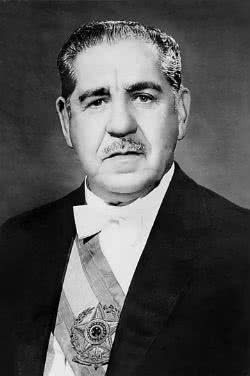When we talk about colonization in Brazil, it is common to come to the conclusion that the Portuguese installed here an order committed to the interests imposed by mercantilist development and the colonial pact. In this sense, the entrepreneurs who appeared here would naturally be linked to the interests that the Portuguese kingdom would have in our lands. After all, the success of Portuguese exploration presupposed the enrichment of the elite formed here.
Despite being logical, this consideration is not present from the moment we assess the relations between the colonial elite and the political institutions of Portugal. Here we see the development of a markedly unstable relationship, where cooperation and conflict took place as different games of interest took place here. Thus, we can say that Brazilian colonization was notable for quite contradictory situations.
With regard to the development of the domestic economy, for example, we see that the large owners of land didn't care much about articulating economic actions that could meet the population's demand colonial. It is not by chance that we see that the cattle raising activity in the colony did not have the support of the large sugar producers. Interested in expanding the sugarcane plantations, the herd formed here ended up settling in the interior of the territory.
Added to this factor, we see that the kingdom of Portugal itself expressly prohibited the development of any economic activity that could rival the manufactured products of the metropolis. As the elite provided the economic conditions to buy such products, the supply of the rest of the population was a constant problem in several regions of the country. In this way, the local elites condoned the economic stagnation propagated by the metropolis itself.
Do not stop now... There's more after the advertising ;)
If the union was noticed in this plane, we observed that the colonial elites, in several situations, were against the metropolitan taxes and requirements. In the eighteenth century, for example, the expansion of taxes and inspection driven by the mining economy determined the realization of a good part of the rebellions of that time. In this context, we see that the elite turned against the metropolis without reaching the point of demanding the complete interruption of the colonial pact.
The complete break with this situation only happened at the moment when the accumulation of capital carried out by colonization established the transformation of international capitalist development. In the nineteenth century, interested in expanding their trade relations with industrialized countries, national elites finally organized themselves in order to break the pact. However, this did not configure the desire to think about the project of a nation, but in meeting the interests of a minority.
By Rainer Sousa
Master in History
Would you like to reference this text in a school or academic work? Look:
SOUSA, Rainer Gonçalves. "Contradictions of Colonization"; Brazil School. Available in: https://brasilescola.uol.com.br/historiab/contradicoes-da-colonizacao.htm. Accessed on June 27, 2021.



